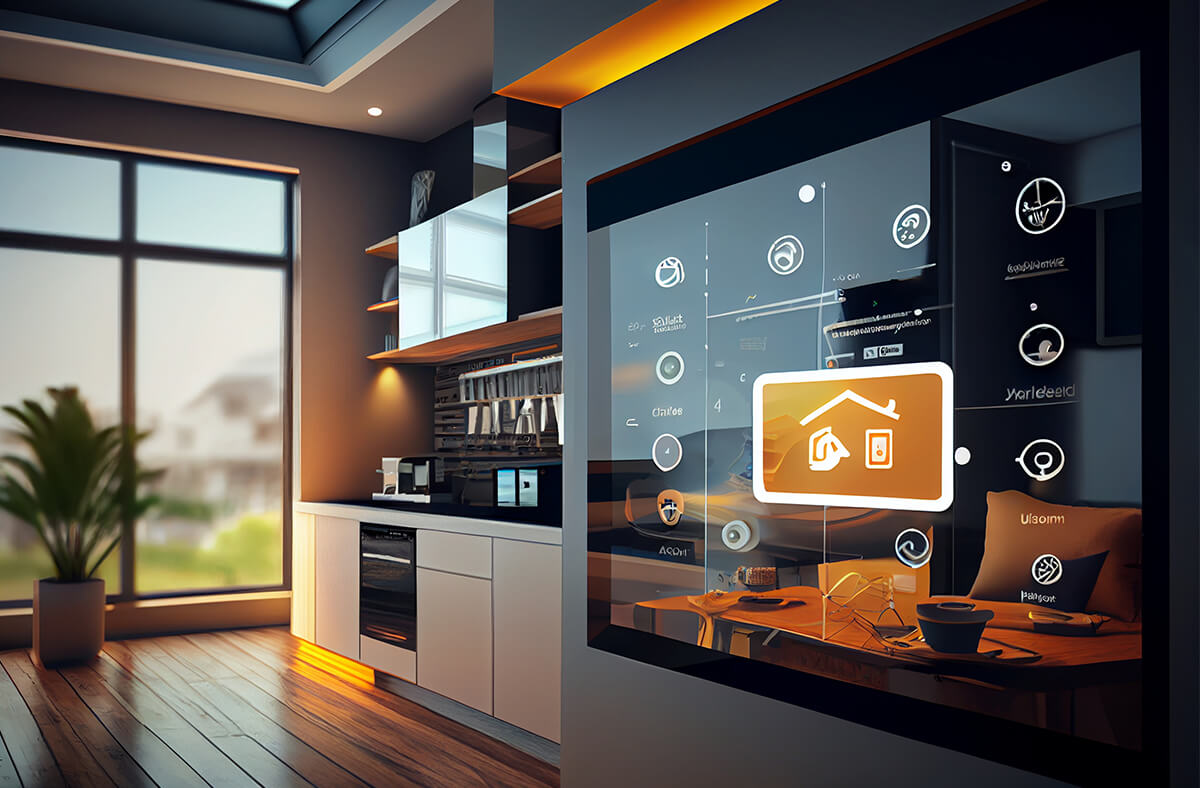The housing market is an ever-evolving industry. As a builder, it’s tough to keep up with the changing demands of home buyers, especially when it comes technology. How does technology fit into the home now, and how will it evolve in the future? As the most technology-savvy demographic, Millennials have become the largest segment of home buyers, and they are the most important generation to understand. But they aren’t the only ones with a growing interest in smart homes.
Who is buying smart homes?
With Millennials accounting for 34% of home buyers, and with more and more reaching peak house buying age, this is the generation to watch. Smart products are already in 47% of Millennials’ households—and this trend is only going to grow. Those who already have smart home technology, love it. 91% recommend it and are likely to buy more. Their positive experience with home automation technology is going to be top of mind when Millennials search for their dream home.
Millennials are the most familiar with tech, but this doesn’t mean the home automation trend hasn’t reached other generations. Smart voice technology, particularly, has resonated with the Baby Boomer generation. Alexa and Google Homes’ explosive popularity is mainly with Boomers, who can’t get enough of the convenience of voice command AI assistants. As a generation that grew up with less exposure to technology, a huge benefit of AI assistants is they are “hands-off”, and minimize the need to use the small cell phone screens.
Even an unlikely group to jump into new technology, seniors, have integrated smart home systems into their homes or senior living communities. Automated homes can help the elderly remain independent for longer, or help monitor their safety as they age. This technology can also help people with disabilities perform tasks they ordinarily can’t perform on their own. A simple feature such as turning appliances and lights on and off can greatly help keep seniors safe and give them greater control over their home.
Why does the modern home buyer want a smart home?
A new home buyer wants to know—is it worth it to invest in a smart home? There are already so many home purchasing decisions to make, so why does a home buyer want to purchase a home that’s smart and automated?
Savings
A smart home is an initial investment, and home buyers wonder if this investment will pay off. Smart home systems include all kinds of technology, but one of the main money grabbers is the heating and cooling system, at almost 50% of a home’s energy use. But some smart climate systems, like Nest, are so energy efficient they pay for themselves in less than two years. Lights are the second highest energy use, and smart systems can easily turn off lights and adjust the brightness of lights to save energy.
Smart security systems have clear home safety appeals, but they can also directly save home owners money. Automated security systems deter home robberies, helping to keep families and belongings safe. But these security systems can also help lower home insurance rates—a clear savings win for homeowners.
Sustainability
There has been a definitive shift towards “going green” with more cultural awareness about humans’ impact on the earth. Although Millennials care more deeply about sustainability, it has become a consideration for all generations. 83% of Americans plan to look for opportunities to live more sustainably, and home automation is a way to reduce energy use in the home. From lights, to appliances, to climate systems, smart homes make it simple to turn off everything you aren’t using, and adjust to be more energy efficient use while you are away.
According to a Neilson global online study, almost 75% of Millennials are willing to pay extra for sustainable offerings, and Generation Z is also committed to positive environmental impact. These young generations of the future will demand sustainable offerings in the home, and home automation is simple way to improve energy efficiency and meet these future home buyer needs.
When is the right time to install a smart home?
Home buyers are willing to spend more money on a smart home, but they want the smart system to be installed before they purchase the home. Buyers prefer to skip the installment step for move-in to be turnkey. 71% of American buyers want a house to be “move-in-ready”, 81% of those with smart home products would be more likely to purchase a home if smart home technology was already installed. Automated home systems elevate a house on the market, with 54% choosing a smart house over an identical house without smart technology.
Why is TiO right for home builders?
According to a survey of almost 22,000 home shoppers by John Burns Real Estate Consulting, home buyers rank smart technology as a high priority when searching for a home, and are also willing to pay thousands of extra dollars for it. With TiO, builders can give buyers what they want, while getting what they need in return: a simple, scalable and affordable solution.
Simple
The simplicity of TiO is undeniable. If you can install a light switch, you can install TiO. It’s a wireless plug-and-play system that incorporates hardware and patent-protected software to fully automate the high-impact functions of a home, such as lighting, sound, climate and security. TiO lives up to its name, because once the wall touch controls are installed, all you have to do it Turn it On. It’s that simple. The MasterCoordinator™ or “brain” of the system automatically syncs to all of the rooms in the house based on pre-configured packages. And once it’s on, TiO takes it from there. With a full tech support crew, automatic app updates and a partnership with Best Buy’s In-Home Advisors, there is no recurring fees for the homeowner and no burden on a builder’s warranty department.
Scalable
TiO is easily expandable so there’s no penalty for starting small. Since installation is so simple, TiO allows builders to scale while not slowing down production. TiO handles any and all updates so builders can focus on what they do best. Because it’s a wireless system controlled through an easy-to-use app, home owners can also expand their offerings and customize their experiences at the touch of a button, from Party Time to Bed Time. It saves the home owner from having to call a programmer to come to their house and rewire or reprogram the wall switches any time they desire a change.
Affordable
With no additional labor costs or new subcontractors required, TiO allows for instant savings when compared to other home automation brands. Builders can add to their market value without the high price tag of most smart home systems. TiO’s price points increase margin for builders, and the are NO recurring costs to the homeowner such as customization or updates, so builders get all the features of high-end automation for much less.




